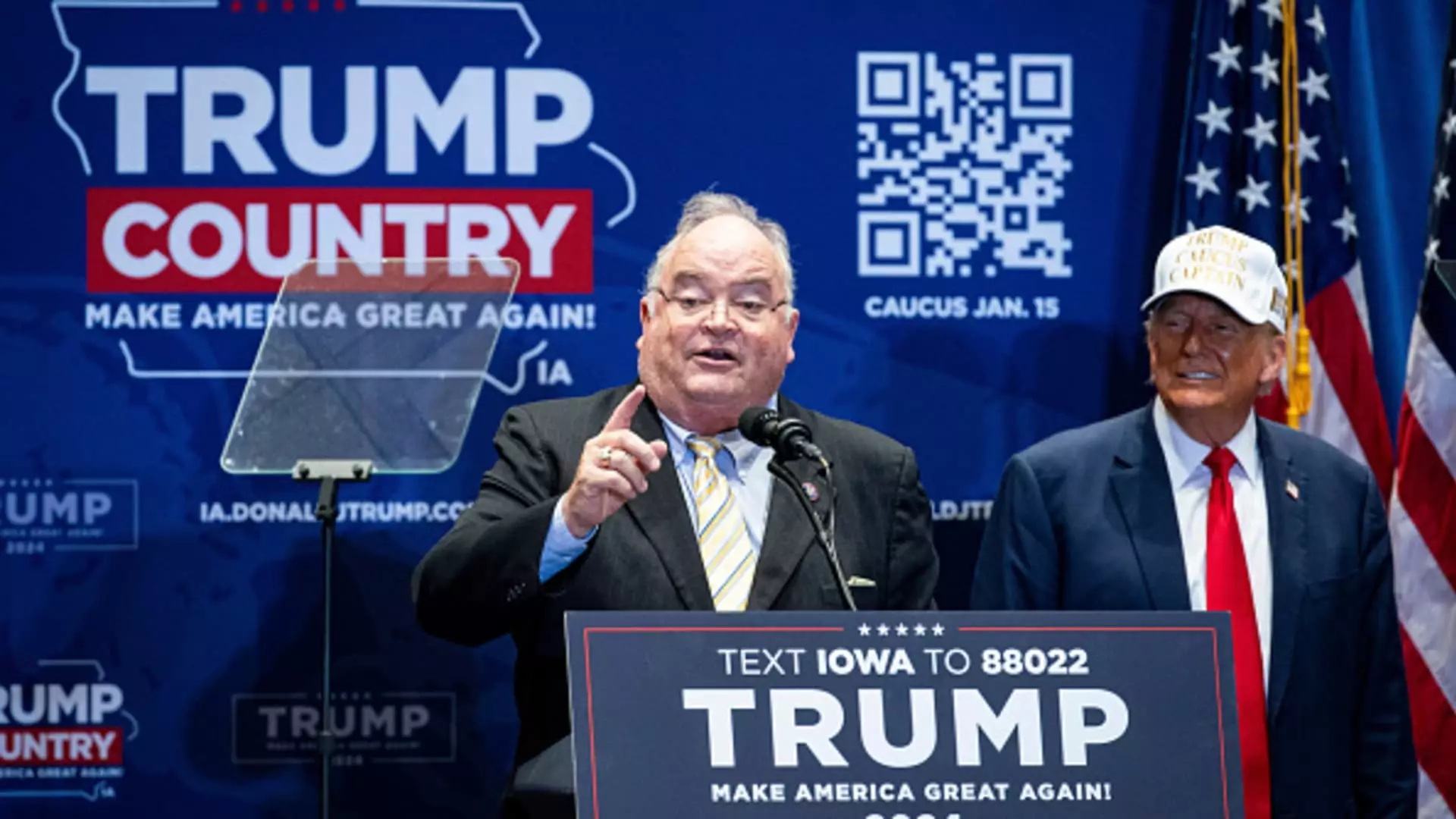The recent confirmation of Billy Long as the next IRS Commissioner spells a moment of intrigue and trepidation for American taxpayers. Appointed by former President Donald Trump, Long’s confirmation process has been marred by contentious debates in Washington, raising significant queries about the agency’s future. His appointment passed through the Senate on a strict party-line vote, highlighting a divide that encapsulates the very essence of contemporary American governance. The deep-rooted affiliations with Trump, particularly in the context of serious concerns over the politicization of a crucial financial institution, cast a long shadow, prompting many to question the implications for the IRS’s integrity.
Long, a former Congressman from Missouri, found himself navigating a minefield throughout the confirmation process. Critics from the Democratic wing scrutinized his ties to questionable tax credits, posing existential questions about his ability to remain impartial. At a Senate Finance Committee hearing, Long took a defensive stance, asserting his commitment to an apolitical IRS—a promise that, while noble in sentiment, leaves room for skepticism in the current political climate defined by cronyism and favoritism.
Assessing the Current Landscape
Long’s ascent to the directorial seat comes at a time when the IRS is not just challenged by external perceptions but also grappling with internal crises. The agency is facing a barrage of budget cuts initiated by the “Department of Government Efficiency” spearheaded by tech mogul Elon Musk. These reductions, an astounding 37% cut to IRS spending outlined in the Trump administration’s fiscal 2026 budget request, threaten to create a bureaucratic bottleneck just as taxpayers face an already bewildering tax landscape.
Barnacles of inefficiency cling stubbornly to the IRS, and the recent fiscal squeeze will only exacerbate this situation. The Treasury Inspector General for Tax Administration (TIGTA) substantiated these concerns in a chilling report, indicating that the number of revenue agents who conduct vital audits has depleted by nearly one-third. Such attrition signifies a tangible risk of lost revenue—federal taxes that remain unpaid due to insufficient enforcement—and highlights the glaring reality of an estimated $696 billion tax gap for the year 2022 alone.
Modernization vs. Reality
In his written testimony, Long professed a desire to modernize the agency to enhance revenue collections, a goal that has become nearly Sisyphean under the current conditions. While he champions technological advancement—buzzwords like “smarter IT” and “AI”—the pathway forward seems more convoluted than ever, particularly with the anticipated hiring freeze and implementation delays. The promise of efficiency feels increasingly hollow when weighed against the realities of inadequate manpower and rampant administrative burdens awaiting the agency as extensive tax reforms are set to land.
Republican support for sweeping tax changes, as proposed in Trump’s “big beautiful spending bill,” could further complicate the state of affairs. Among these provisions is the pre-certification requirement for families claiming the Earned Income Tax Credit. This policy initiative could strangle the IRS’s limited resources, inundating an already crippled agency with redesigned administrative challenges. If Long’s vision of streamlining the agency fails to materialize amid burgeoning complexity, the consequences could directly impact millions of American families relying on crucial tax credits.
The Path Forward: Hope or Disappointment?
With the specter of budget cuts, staffing shortages, and mounting responsibilities hanging over Long’s administration, optimism appears dangerously misplaced. While he may genuinely intend to uphold his promise of a non-partisan agency aiming at truthful tax collection, the structural undermining of the IRS leaves room for doubts. Can one individual truly extricate an entire organization from the icy grip of partisan politics and underfunding? It’s a murky road ahead, laden with the very real risk of compromise and inefficiency that threatens the trust millions place in the IRS. The next few years will be crucial, not only for Long’s legacy but for the livelihoods of countless Americans navigating the increasingly complex world of taxation.

